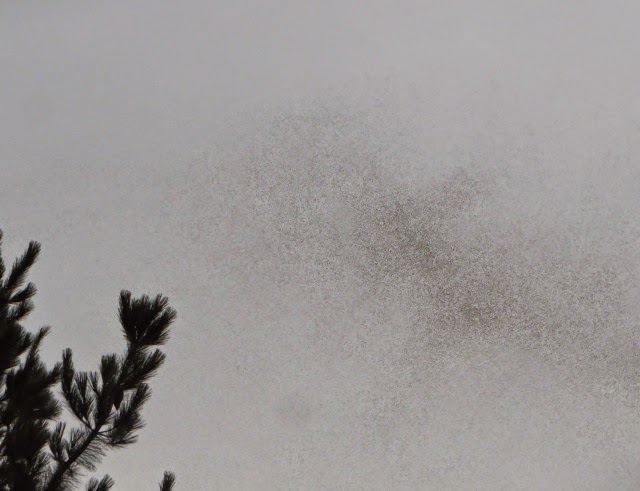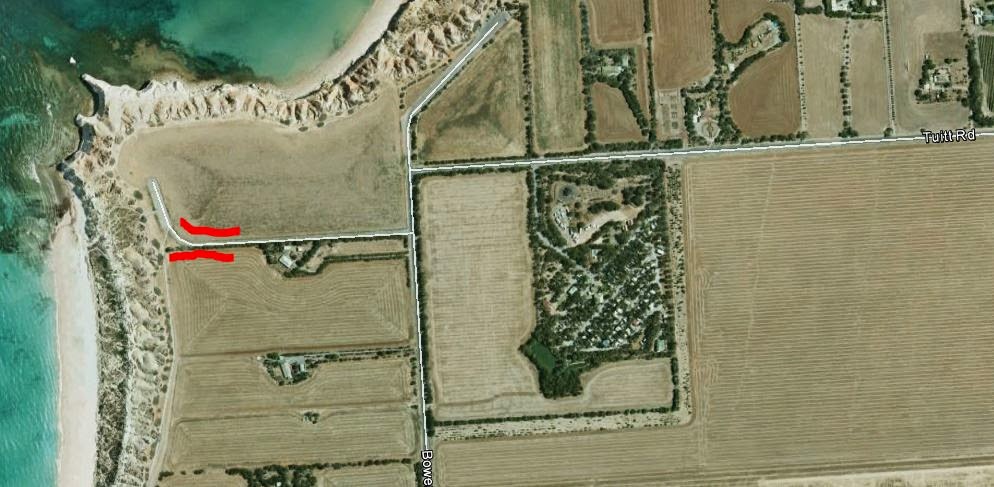A visitor to the garden
It is very common for us to get Eastern Grey Kangaroos of various shapes and sizes on our lawn. This is seen, and barked about, with disapproval by the small dog. The roos take the hint and nick off (although these days that is done more in a sense of it being their role in a well defined game as opposed to panic)!
This morning we had the pleasure of a visit from Wallabia bicolor, which I have always known as a Swamp Wallaby (or Swampie).
The fact that it merely looked at, rather than munched, the camelia behind the callistemon is why the visit was pleasurable from both perspectives. The species is apparently unusual for macropods in getting most of its food by browsing rather than grazing.
The name of 'bicolor' presumably refers to the chestnut and dark grey ignoring the light grey on the lower face and chest, I suppose for a taxonomist to get 2 out of 3 is pretty good. The selectors of vernacular names also get 2/3 since the species does seem to like dense bush as found in Swamps, and on the basis of expert advice from the small dog, leave a very strong scent (so Stinker is correct, albeit somewhat pejorative). I disagree with any moves to makes its "official" vernacular name (oxymoron anyone?) Black-tailed Wallaby!
On the evening of 15 June I went to deposit some prawn carcasses in the dam and disturbed a wombat on the lawn. The small dog - indoors - caught the scent and Was Not Happy (nor quiet). We often see evidence of their presence
but only rarely sight the animals themselves. Perhaps I should have followed Denis' example and left this as a text-only record?
This morning we had the pleasure of a visit from Wallabia bicolor, which I have always known as a Swamp Wallaby (or Swampie).
The fact that it merely looked at, rather than munched, the camelia behind the callistemon is why the visit was pleasurable from both perspectives. The species is apparently unusual for macropods in getting most of its food by browsing rather than grazing.
The name of 'bicolor' presumably refers to the chestnut and dark grey ignoring the light grey on the lower face and chest, I suppose for a taxonomist to get 2 out of 3 is pretty good. The selectors of vernacular names also get 2/3 since the species does seem to like dense bush as found in Swamps, and on the basis of expert advice from the small dog, leave a very strong scent (so Stinker is correct, albeit somewhat pejorative). I disagree with any moves to makes its "official" vernacular name (oxymoron anyone?) Black-tailed Wallaby!
On the evening of 15 June I went to deposit some prawn carcasses in the dam and disturbed a wombat on the lawn. The small dog - indoors - caught the scent and Was Not Happy (nor quiet). We often see evidence of their presence
but only rarely sight the animals themselves. Perhaps I should have followed Denis' example and left this as a text-only record?







Comments
even though it does have a very long, heavy tail (the reason it is in its own genus).
The other common Wallabies are all in with the Roos (Macropus, vs Wallabia).
http://en.wikipedia.org/wiki/Macropodidae.
Rock Wallabies and Pademelons in their won groups, but Swampy is all alone.
Denis
"own groups" not "won groups".
DJW